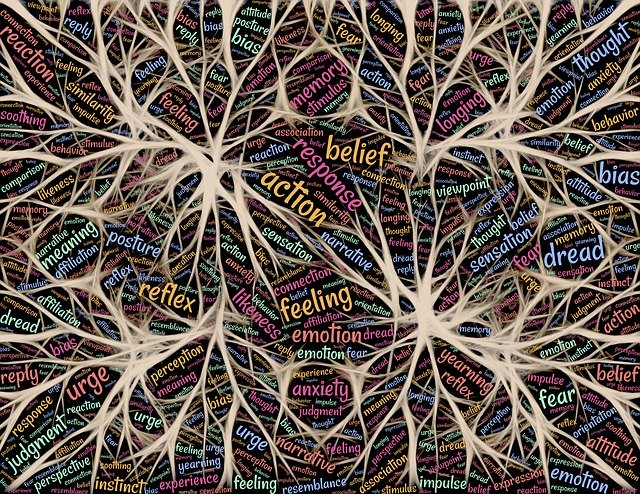A lab-grown brain: a mind of its own?
Neuroscience is hardly the most controversial of fields, but a 2019 paper published by Alysson Muotri has recently drawn considerable scrutiny. It reports on the creation of human brain organoids, which are grown from human stem cells, and the fact that they were producing coordinated waves of activity. This akin to the brain function of a premature baby, and although the experiment has since been shut down, it raises a big question – could lab-grown brains ever develop to such an extent that they become conscious? Is it ethical to produce such a brain, and what would that mean for our species?
Could lab-grown brains ever develop to such an extent that they become conscious?
At the heart of this issue is a question that has baffled scientists and philosophers alike for many years – what exactly is consciousness? There’s no real definition, but many experts agree on certain traits that conscious beings share – they are aware of their surroundings, themselves and their own perception. As Joseph LeDoux, professor of neural science and psychiatry at New York University, puts it: “Almost everything you can say about it is kind of BS. The only way to describe it is in terms of what it is and what it’s not.”
Early view of consciousness was governed by widespread religious attitudes – that mankind was conscious because it was created in the image of God
But the understanding has evolved through time. Galileo argued that anything to do with consciousness belonged outside the realm of scientific inquiry, and René Descartes constructed a famous argument called mind-body dualism – essentially, the mind (or soul) and the body are two fundamentally different things. In a sense, the early view of consciousness was governed by widespread religious attitudes – that mankind was conscious because it was created in the image of God.
It’s a difference of degree, not of kind
The attitude that consciousness is particularly special to humans fell out of favour due to scientists like Thomas Huxley, who said that what happens in the mind is a result of material events happening in the brain. Susanna Schellenberg, professor of philosophy and cognitive science at Rutgers University, said: “Consciousness isn’t anything special in the world. We write poetry and rabbits don’t, as far as we can tell. So, it’s a difference of degree, not of kind.” As Dr Heather Berlin, cognitive neuroscientist and professor of psychiatry at the Icahn School of Medicine puts it: “It’s still one of the greatest mysteries how this three-pound piece of matter can give us all our subjective experiences, thoughts and emotions.”
Much of this modern debate is fuelled by neuroscientists, who argue that the study of diseases like autism and schizophrenia may require human brain organoids, deliberately developed to a state of consciousness. But there’s a real lack of scientific consensus about what this means, as the myriad of definitions linked to consciousness mean it’s very hard to know it one of these organoids is conscious.
Tests like the electroencephalogram (EEG) reading, measuring the brain’s response to an electric shock, and the integrated information theory, looking at the density of neuronal networks across the brain, propose different bars to being considered ‘conscious’. A recent experiment by a team at Yale saw a pig’s brain partially restored to life by infusing it with a chemical cocktail – but was it conscious? We just don’t know, and that’s what makes this field so sketchy. There’s a feeling that, as the definitions are so ambiguous, consciousness could be developed before ethicists realises that an experiment is unethical.
If a lab-grown brain developed consciousness and became self-aware, would it be entitled to any legal rights?
As a result, there’s a potential here for some incredible ethical issues. If, for example, a lab-grown brain developed consciousness and became self-aware, would it be entitled to any legal rights? Should it? Would destroying such an organism be murder? Could these organisms be considered endangered, and thus protected under the law? Would these brains have a right to life, and what would such a life even look like? Ethicists are aware of this and, in June, the US National Academies of Sciences, Engineering and Medicine began a study outlining the potential legal and ethical issues associated with this line of research. However, although the Society for Stem Cell Research is working on organoid guidelines, it’s not addressing consciousness because it doesn’t believe the science is at that level yet.
Researchers in this area agree that developing guidelines is an important step, limiting the amount of pain inflicted upon the creations and demanding they be disposed of humanely. Developmental biologist Madeline Lancaster, of the University of Cambridge, stressed that such experiments could be important for our understanding of the brain: “There are truly conscious people out there with neurological disorders with no treatments. If we did stop all of this research because of the philosophical thought experiment, that would be very detrimental to actual human beings who do need some new treatment.”
Developing consciousness is a major issue in science, and the lack of any clear-cut definition about what it means to be conscious means this research will be subject to significant ethical questions and scientific disputes. For so long, building conscious life in a lab belonged in the realm of Frankenstein but, if this science is on the horizon, we need to start asking big questions about what this means, both for ourselves and this new form of life.

Comments